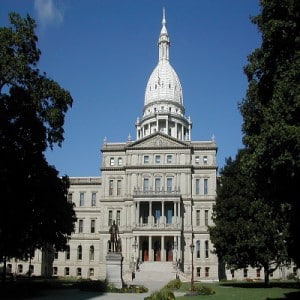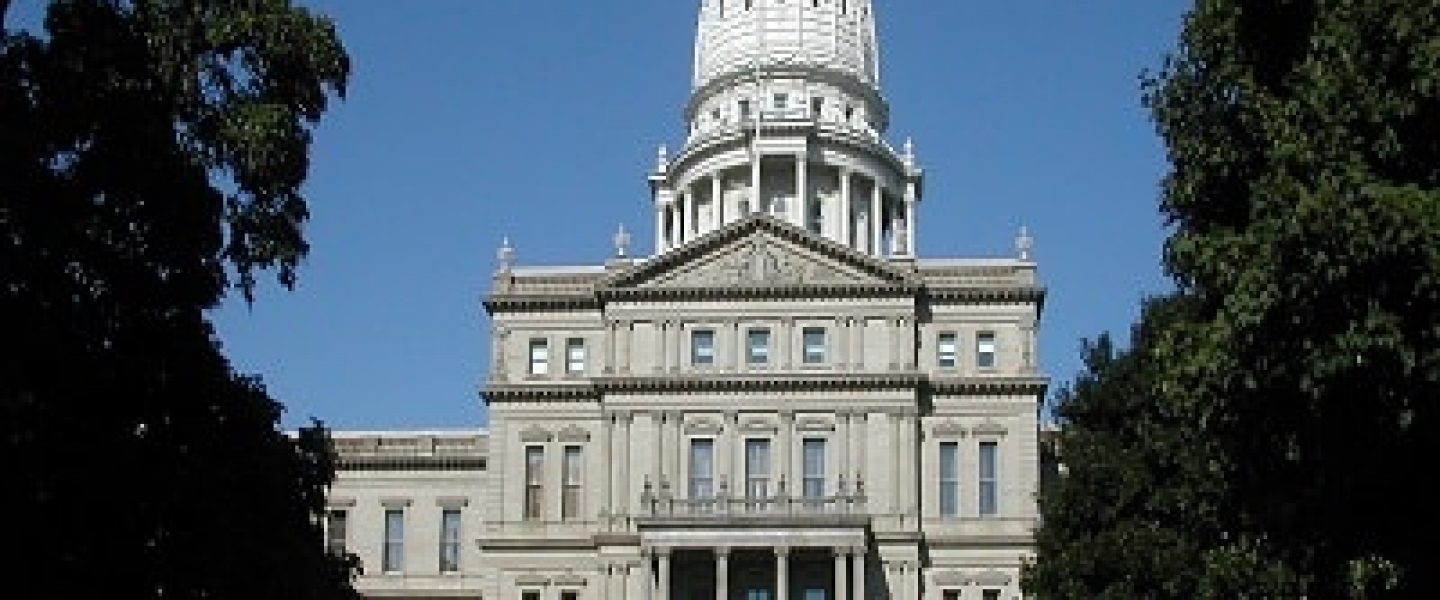 Kathleen Gray of the Detroit Free Press has uncovered a potentially earth-shattering story from the Michigan legislature. Lawmakers have passed a measure that bans using public funds or resources to educate the public on any proposal appearing on a ballot within 60 days of the election; SB 0571 was approved by both the House and Senate in some late-night legislative wrangling before lawmakers skipped out of town for Christmas break. It was presented to the Governor for his signature at 10:52 on December 28.
Kathleen Gray of the Detroit Free Press has uncovered a potentially earth-shattering story from the Michigan legislature. Lawmakers have passed a measure that bans using public funds or resources to educate the public on any proposal appearing on a ballot within 60 days of the election; SB 0571 was approved by both the House and Senate in some late-night legislative wrangling before lawmakers skipped out of town for Christmas break. It was presented to the Governor for his signature at 10:52 on December 28.
This story of ambush is all-too-familiar to Michigan’s civil rights organizations: This was ”the final bill passed before the legislature adjourned… started out as a fairly innocuous campaign finance bill… was totally changed at the last minute in the House…that provision was added without any public hearings or notice to the parties that will be most affected… the revamped bill grew from 25 to 53 pages during the late-night session… Democrats objected to the bill, primarily because it wasn’t shared with them until moments before a vote was taken… the bill passed, mostly along party lines…”
The exact language of the Bill reads:
Sec. 57 (3) EXCEPT FOR AN ELECTION OFFICIAL IN THE PERFORMANCE OF HIS OR HER DUTIES UNDER THE MICHIGAN ELECTION LAW, 1954 PA 116, MCL 168.1 TO 168.992, A PUBLIC BODY, OR A PERSON ACTING FOR A PUBLIC BODY, SHALL NOT, DURING THE PERIOD 60 DAYS BEFORE AN ELECTION IN WHICH A LOCAL BALLOT QUESTION APPEARS ON A BALLOT, USE PUBLIC FUNDS OR RESOURCES FOR A COMMUNICATION BY MEANS OF RADIO, TELEVISION, MASS MAILING, OR PRERECORDED TELEPHONE MESSAGE IF THAT COMMUNICATION REFERENCES A LOCAL BALLOT QUESTION AND IS TARGETED TO THE RELEVANT ELECTORATE WHERE THE LOCAL BALLOT QUESTION APPEARS ON THE BALLOT.
A Republican Representative said these issues have been talked about for quite some time and called the changes “minor.” Democrats, who do not have the numbers to stop legislation in either the Michigan House or Senate, complain that the enemies across the aisle “are not allowing us to read and understand the changes” before calling the issue for a vote.
The responses from representatives of the local governments and their employees gagged by this bill’s order are predictably outraged. Christian Hackbarth of the Michigan Municipal League is quoted in the Free Press article as saying, “You’re telling these officials they can’t even respond on their computer or phone, to a question from a constituent.”
Dana Gill, director of governmental affairs for the Michigan Association of Counties, said, ”The new language does not allow any communication between local governments and their citizens within two months of an election.”
“There is no compelling public interest served by this restriction.”
Hackbarth observed that the ban would prevent government officials from speaking on public access television stations or even in public meetings like City Council sessions about issues their constituents need to know. He added that the bill’s proposal would essentially be “blocking access to unbiased, objective communication on the local issues that matter most to the residents in every community in Michigan.”
Uncertain at this stage is if Police Chiefs and Sheriffs would be gagged and prevented from discussing any marijuana-related ballot proposals for the two months before an election like city officials are.
This process of government is exactly the kind of thing we in the marijuana rights community complain about all the time, including last-minute changes, votes without debate and far-reaching ramifications that favor the empowered.
If Hackbarth’s observations are correct it significantly favors the business and financially established players in the lawmaking game. If media wants a comment on a fracking issue appearing on the ballot, they can no longer turn to an elected official and get answers. In many places there is no organized citizen spokesperson, meaning the only voice available for media to interview is that of industry representatives.
Advantage, rich people. Again.
When you silence the voice of government and allow only the rich to get out their message via expensive media advertising, you alter the course of elections.
…And speaking of altering the course of elections, that same SB 0571 also contains a provision to allow campaigns to not report their financial contributions until after the elections. This changes the rules for PACs and other election-influencing organizations, who can convert last-minute (and therefore questionable) contributions into direct mail campaigns and television ads without answering to the voters until after the issue is decided.
“Millions of dollars pouring into special campaigns will go unreported until long after an election is held,” Gray wrote.
The Koch Brothers couldn’t have done it better if they had written the rules themselves. Or perhaps they did. Michigan Republicans are good soldiers.
Source: The Compassion Chronicles






